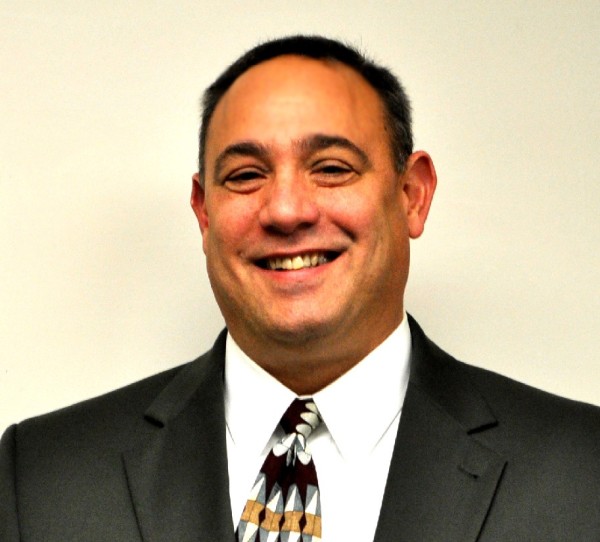
FALL RIVER, MASSACHUSETTS
In January 2005, seven-year-old Nicole Garofalo of Plymouth, MA, died of carbon monoxide emanating from a vehicle outside her home. A year later, Nicole’s Law made it mandatory for homes and business that accommodate overnight customers to have CO detectors. Ten years later and on heels of a major storm in the Northeast, carbon monoxide detection remains a work in progress.
“The good news is that many people who did not have CO detectors in their homes in 2005, now do,” said John Carvalho, president of Apollo Safety, Inc.—a veteran-owned, Fall River, Mass.-based company specializing in safety products like gas detectors and gas monitoring services. “That has led to another trend in that fire departments receive more calls about CO and that’s mostly because people have detectors in their homes.”
In 2013 in the state of Massachusetts, the last year for which data is available, fire departments responded to 19,524 carbon monoxide incidents. Unsafe levels of the invisible, deadly gas were confirmed in 4,884 of those calls—a 25 percent confirmation.
“Unfortunately, there are still homes without detectors and most states do not have laws requiring commercial entities to have detectors. The states that do have laws only require state or municipal and businesses with beds—hotels, hospitals, etc.—to have detectors.”
That reality was in evidence nearly one year ago when a carbon monoxide leak in the heating system at a large national restaurant chain’s Long Island, New York location. This resulted in the death of a restaurant manager, the hospitalization of another staff member and the need for 26 patrons to be treated at a local hospital. The chain promptly responded to the incident by installing CO detectors in all their locations.
“The reality is that it doesn’t take much of a leak with green-efficient construction to have an impact,” said Carvalho. “Complicating matters even more is that everyone—young, old, athlete or ‘average Joe’—reacts differently to carbon monoxide. Some people fall ill or fall asleep in a fairly short amount; even in as little as 15 minutes. For others it can be longer. As was the case at the restaurant, it doesn’t take overnight exposure to carbon monoxide for it to be lethal.”
Carvalho recommends that any commercial or residential building using any and all fossil fuel sources such as oil, propane, and natural gas be equipped with a carbon monoxide detector in the basement or boiler room. He cites the need to fully comply with all codes at an absolute minimum and not “just get by”.
“Elbow pipes can be particularly dangerous when there’s a leak because the shape of the pipe will actually slow the flow of the carbon monoxide and create much greater exposure than a straight pipe,” said Carvalho.
In terms of the types of systems commercial businesses should choose that can vary on the size of the building, the number of people in that building at a given time, etc.
“It’s conceivable that a smaller business could get by with a store-bought, battery-operated carbon monoxide detection system that you would have in your home,” said Carvalho. “Yet when you consider the potential risks and the devastating impact one incident can have on a business—even with no fatalities–it just make sense to take that extra precaution for your customers and staff .”
Apollo Safety’s offerings include a wide variety of portable and stationary gas detection systems suitable for large universities, including name brands like Industrial Scientific, RAE Systems, RKI, and GMI. These systems are available for purchase or rental at weekly or monthly rates. Rental equipment is certified to NIST standards and is guaranteed for the entire rental period.
In addition, Apollo Safety also provides on-site installation and training and 24/7 service. All Apollo Safety technicians are factory-trained and certified. In addition, Apollo offers its own training program, with five levels of certification.
Apollo Safety provides service in a “state of the art” in-house service center, as well as offering on-site support with factory-trained technicians for both portable and stationary gas detection systems. Apollo uses only factory-original parts for repairs and repairs are made exactly to client requirements. Apollo guarantees a 10-day turnaround time with pre-approval, though 66 percent of all repairs are completed in five days or less. Free software upgrades included with all repairs.
For more information on Apollo Safety products and services, please call 800-813-5408 or visit www.apollosafety.com.
About Apollo Safety
Apollo Safety has been serving the safety industry since 1995 and is an efficient, trusted company that minimized potential liability for its customers while ensuring a safer public. Apollo Safety specializes in gas detection products and services for portable and stationary systems. That includes gas detector sales and support for most major brands of gas detection , manufacturers. Apollo Safety also provides service in a “state of the art” in-house service center, as well as offering on-site support with factory-trained technicians for both portable and stationary gas detection systems.
Veteran-owned, Apollo Safety, Inc. is trusted by facilities managers, building owners, landlords, universities, hotels, institutions, and government operations. Apollo Safety is a member of the National Safety Council, National Fire Protection Association (NFPA), Rhode Island Fire Chiefs Association (RIAFC) and the Fire Chiefs Association of Massachusetts (FCAM).
Apollo Safety’s corporate headquarters is located at 57 Walnut Street in Fall River, Massachusetts—the company also has an office in Boston, MA. For more information on Apollo Safety products and services, please call 800-813-5408 or visit www.apollosafety.com.


Follow Us!